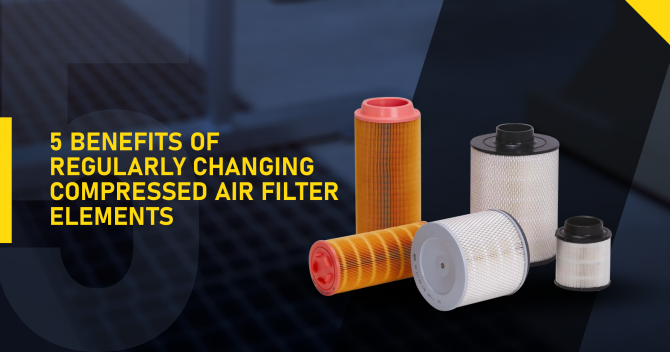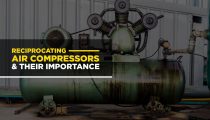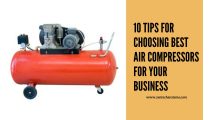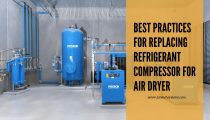As time changes, the need for substituting compressed air has…

5 Benefits of Regularly Changing Compressed Air Filter Elements
Compressed air systems generally rank high on the durability count. However, their performance and productivity levels can sharply diminish over time – if due attention is not given to the system maintenance requirements. In particular, not changing the filter elements of air compressors regularly can lead to a myriad of problems. The sub-optimal operations can cause costs to rise and workflows to become inefficient – and the compressor itself can get irreparably damaged. In what follows, we will shed light on the biggest advantages of periodically changing compressed air filters:
Contaminant Removal & Minimisation Of System Downtimes
On average, nearly 9 out of every 10 manufacturing processes rely on compressed air supply (in varying degrees). One of the biggest mistakes often made is sticking with the same air filter elements for extended periods – just because they ‘appear clean enough’. The filtration mechanism lies right at the heart of any air compressor/purification system. Accumulation of contaminants can affect its efficiency drastically.
When dirt and dust particles are allowed to gather in the air filter of the compressed air system, the airflow is likely to be affected by a sharp pressure drop. As a result, the workload on the compressor system goes up – and there are risks of mechanical failures, and resultant system downtimes. The quality of the compressed air output also goes down significantly.
By changing the air filters of the compressor at regular intervals, users can bring down the overall operational expenses and the total energy consumption by the system. As many as ten key contaminants can be present in any compressed air system – and with the help of coalescing filters, most of these contaminants can be reduced. Air quality & productivity are improved, and downtimes are minimised.
Working With Damaged Air Filters Can Be Hugely Problematic
The air filter elements in particular, and the compressed air systems in general, are often exposed to extreme operating conditions. There can be significant pulses in air demand, humidity levels can vary over a large range, and there are also variations in air pressure. When lubricant additives and condensates are used, there are risks of chemical corrosion as well. All of these work together to damage the air filter media over time, diminishing its strength & functionality.
An apparently small damage (e.g., a hole) in the air filter element can cause all the contaminants in the compressed air system to be carried downstream. This happens because compressed air always flows along the least resistance path (in this case, the damaged filter media).
Air compressors with damaged filter elements fail to maintain the desired level of air quality (i.e., purity). That’s precisely why leading air compressor manufacturers recommend regular system inspections, and changing the filters at specific intervals. Otherwise, the performance and efficiency of the compressed air system can be affected in a big way.
Cutting Down On Energy Costs
When the air filter elements of the compressors are left unchecked for extended periods of time, the accumulated dirt in the system can pose serious problems. Since the airflow is likely to get blocked, the air compressor is forced to consume more energy to generate the same output volume. Energy expenses keep rising, and risks of system breakdowns go up.
When the air filters are replaced regularly, users can make sure that the performance of the compressed air system(s) is not affected by the presence of dirty filters. This, in turn, cuts down on the total energy costs and maintains the system efficiency level. The service life of air filter elements is finite – no matter how advanced they might be.
It is also important to understand that ‘differential pressure (DP)’ is not the only factor that should drive the decision to change the air filter or not. The filters can also have a ‘DP Gauge’, that indicates premature airflow blockages. It does not, however, indicate when the filter elements should be changed.
Maintenance Of Production Efficiency & Safety Standards
The purity of the compressed air output from the compressor system has to meet ISO specifications. Replacing the old air filter takes care of this requirement. In addition, the new, clean filters make sure that the production workflows remain agile and streamlined – and there are no unforeseen spikes in manufacturing/maintenance/repairing costs.
Changing the filters of compressed air systems is also important from the safety perspective. Unless this is done, contaminations from the system cylinders & valves can seriously downgrade workplace hygiene levels. An air compressor with damaged filters can also pose risks of accidents. Users need to keep in mind that the potential costs of using damaged air filter elements can be considerably higher than the price tag of the new filter.
While looking to replace air filter elements, it is important to follow the recommendations specified by the compressed air system suppliers. In general too, the filters should be replaced annually. Regular inspections can also help in identifying probable leaks in the system and resolving the problems at an early stage.
Boosting The Longevity Of The Compressed Air Systems
If left unreplaced, the old and dirty air filter elements can affect the lifespan of the compressor system. The borosilicate glass that is generally used to manufacture the filters can develop tiny pinholes – leading to accelerated flow of contaminants. As a result, the compressed air quality is compromised. Since the compressor is no longer working efficiently, users are forced to look for repairs/replacements.
While delaying the task of purchasing new air filter elements might seem to be cost-saving initially, the potential risks can be huge. Since a compressed air system with damaged/dirty filters has to operate for longer to generate the same output, there can be overheating – leading to mechanical glitches and failures.
Air compressors can function optimally over a long period of time – provided that there are no problems in any of the components. Users have to ensure that the filters have not become contaminated or clogged or too dirty. In order to extend the longevity of the compressor systems, regularly changing the filter elements is extremely important.
The best air compressor suppliers in India generally guide users regarding how frequently the compressor filters should be changed. Maximising the purity of the compressed air output (along with the productivity levels) is of essence – and this is possible only when the air filter elements are replaced regularly. By conducting periodic inspections, problems/damages (if any) in the filtration media can be identified at an early stage, and the affected filters can be replaced. Compressed air systems with problem-free filters deliver the maximum productivity & energy efficiency – and the onus is on users to ensure that there are no problems in the system.





Wow hat was strange. I just wrokte an very long comment but
after I clicked submit my comment didn’t appear. Grrrr…
well I’m not writing all that over again. Anyhow, just wanted
to say superb blog!
Feeel free to visit myy blog: https://spin cacin0.Evenweb.com/
Can you be more specific about the content of your article? After reading it, I still have some doubts. Hope you can help me.
Hi theere to all, how is all, I think evesry one is getting more
from this web page, and your views are pleasant
in favor of new viewers.
Feel free to suirf tto my blog post http://Www.Adtgamer.Com.Br